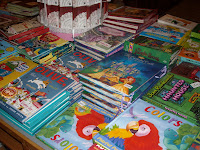
Friday, October 31, 2008
Studs
Goodbye, Studs. It's been (and will continue to be) an honor to shelve your books.
Lobbing More Loebs at the Public
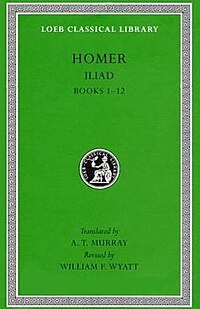
Thursday, October 30, 2008
PopUpalooza!

 So hurry in, these are not the kind of books that last very long in our lobby and when they are gone, they are gone for good.
So hurry in, these are not the kind of books that last very long in our lobby and when they are gone, they are gone for good.Otherwise you'll be missing out on pop ups from Robert Sabuda, Richard Scarry, Disney, Phillida Gili, The Enchanted Dolls' House... and all at discount prices.
Wednesday, October 29, 2008
And Then I Turned to Anthony

To begin, a quote:
"Trollope's novels (are) solid, substantial, written on the strength of beef and through the inspiration of ale and just as real as if some giant had hewn a great lump out of the earth and put it under a glass case, with all its inhabitants going about their daily business and not suspecting that they were being made a show of."
-- Nathaniel Hawthorne
Now then. Does that make you want to read Anthony Trollope or not? If not, there's nothing I could do to persuade you, I'm sure. For me, that Hawthorne quote all but defines the pleasures of a Big Fat Victorian Novel. Nobody did them better than Trollope.
I am reading The Eustace Diamonds, the third in the Palliser novels, for the second time. (These are his political and high-society novels, rather than the more famous clerical novels set in Barsetshire.) But I'm not reading the series (6 novels) straight through this time. Whenever I need a break from grim modernity and or the thin substance of contemporary literature, I pick up Trollope. If it's been long enough, it may take me a few pages, but soon enough I know just where I am, who is who, and what is most definitely what.
Trollope, for me, is all about familiarity, but that isn't to say that his books aren't surprising still, and very funny. For example, this description of a rather difficult old lady:
"She was slow, or perhaps it might more properly be said she was stately in her movements. She was one of those old women who are undoubtedly old women, -- who in the remembrance of younger people seem always to have been old women, -- but on whom old age appears to have no debilitating effects. If the hand of Lady Linlithgow ever trembled, it trembled from anger; -- if her foot ever faltered, it faltered for effect. In her way Lady Linlithgow was a very powerful human being. She knew nothing of fear, nothing of charity, nothing of mercy, and nothing of the softness of love. She had no imagination. She was worldly, covetous, and not unfrequently cruel. But she meant to be true and honest, though she often failed in her meaning; -- and she had an idea of her duty in life. She was not self-indulgent. She was hard as an oak post, -- but then she was also trustworthy. No human being liked her; -- but she had the good word of a great many human beings."
Now that, to the life, describes any number of elderly ladies in my childhood, not least my paternal grandmother -- though I'd be scared to death to say so, had she not been safely dead these twenty years.
Anthony Trollope was one of the greatest English novelists. He is great good company on a cold Autumn evening still.
Go Nerdfighters!
Almost 400 nerdfighters came out to see John and Hank Green at Seattle Public Library and to celebrate the release of John's new book Paper Towns. Music from Molly of sweetafton23, and appearances by Kristina and Kayley of 5 Awesome Girls rounded out the evening's entertainment. Books were signed, prizes were raffled, dancing commenced. This was a wonderful way to celebrate the vlogbrothers, and a rousing finale to our Paper Towns scavenger hunt. Thanks to all who played and all who attended the event. DFTBA and Best Wishes!
John signs a manuscript copy of Paper Towns to be raffled off.
John and Hank Green with University Book Store staff (can you tell how thrilled we are?)
Tuesday, October 28, 2008
Best of the Best of the Best of...
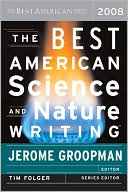

 Dave Eggers, for the more irreverent reader, created The Best American Non Required Reading, this year with an introduction by Judy Blume.
Dave Eggers, for the more irreverent reader, created The Best American Non Required Reading, this year with an introduction by Judy Blume. Monday, October 27, 2008
Happy Birthday Dylan!
Fern Hill
Now as I was young and easy under the apple boughs
About the lilting house and happy as the grass was green,
The night above the dingle starry,
Time let me hail and climb
Golden in the heydays of his eyes,
And honoured among wagons I was prince of the apple towns
And once below a time I lordly had the trees and leaves
Trail with daisies and barley
Down the rivers of the windfall light.
And as I was green and carefree, famous among the barns
About the happy yard and singing as the farm was home,
In the sun that is young once only,
Time let me play and be
Golden in the mercy of his means,
And green and golden I was huntsman and herdsman, the
calves
Sang to my horn, the foxes on the hills barked clear and cold,
And the sabbath rang slowly
In the pebbles of the holy streams.
All the sun long it was running, it was lovely, the hay
Fields high as the house, the tunes from the chimneys, it
was air
And playing, lovely and watery
And fire green as grass.
And nightly under the simple stars
As I rode to sleep the owls were bearing the farm away,
All the moon long I heard, blessed among stables, the night-
jars
Flying with the ricks, and the horses
Flashing into the dark.
And then to awake, and the farm, like a wanderer white
With the dew, come back, the cock on his shoulder: it was all
Shining, it was Adam and maiden,
The sky gathered again
And the sun grew round that very day.
So it must have been after the birth of the simple light
In the first, spinning place, the spellbound horses walking
warm
Out of the whinnying green stable
On to the fields of praise.
And honoured among foxes and pheasants by the gay house
Under the new made clouds and happy as the heart was long,
In the sun born over and over,
I ran my heedless ways,
My wishes raced through the house high hay
And nothing I cared, at my sky blue trades, that time allows
In all his tuneful turning so few and such morning songs
Before the children green and golden
Follow him out of grace,
Nothing I cared, in the lamb white days, that time would
take me
Up to the swallow thronged loft by the shadow of my hand,
In the moon that is always rising,
Nor that riding to sleep
I should hear him fly with the high fields
And wake to the farm forever fled from the childless land.
Oh as I was young and easy in the mercy of his means,
Time held me green and dying
Though I sang in my chains like the sea.
From Dylan Thomas Selected Poems 1934-1952
Saturday, October 25, 2008
Wild Things at 80


In the Night Kitchen, my favorite children's book of of the the past 50 years, followed in 1970. Like it's predecessor, this book has frequently been banned by various bluestockings, convinced, I suppose, that any suggestion that little boys occasionally remove their clothes entirely is an idea so shocking as to require immediate suppression.
The delightful dream of floating through a fabulous kitchen, populated with series of cheerful Oliver Hardy chefs baking wonderful things, seems to me still an almost perfect idea of joy.
Sendack celebrated his 80th birthday in the company of many admirers and friends, including playwright Tony Kushner, Meryl Streep, Judy Blume, and film director Spike Jonze, who showed clips from his upcoming live-action adaptation of Wild Things.
Sadly absent from the celebration was Sendack's late life-partner of 50 years, Eugene Glynn, who died last year.
You can listen to a conversation with Sendak from 2005, at the NPR site.
Or check out the PBS "American Masters" documentary about him, if you want to know more.
Meanwhile, I'm sure all our customers join us in wishing the amazing Mr. Sendak a very Happy 80th Birthday. And many more.
Friday, October 24, 2008
Notes from a Devoted Lobbyist

Thursday, October 23, 2008
"If I can't have too many truffles, I'll do without truffles."

I've decided that that is a good thing. Think of finding Colette for the first time, of meeting Sido or Claudine for the first time! At only a dollar or two per book, anyone can discover a great writer.
If you don't know, Sidonie-Gabrielle Colette (January 28, 1873 -- August 3, 1954) was the greatest modern French writer after Proust and one of the greatest writers of the 20th Century(though born in the 19th, with the morals of the 18th.) She is also witty, amusing, warm-hearted and, as the Brits would say, "dead sexy."
So look for these slim volumes, new or used, when next you're in the bookstore.
I'll close with another quote:
"I love my past, I love my present. I am not ashamed of what I have had, and I am not sad because I no longer have it."
Amen.
Wednesday, October 22, 2008
Wall Street Fall Down Go Bust

The display is in the middle of the first floor, appropriately enough, very near the cash registers. Just look for the Wall Street sign (and the weeping stock-brokers, huddled 'round, furiously reading, reading, reading... hoping to understand the errors of their ways, before it is too late.)
 The Great Depression & the New Deal: A Very Short History, by Eric Rauchway, one in the series of "very short Introductions" from Oxford University Press.
The Great Depression & the New Deal: A Very Short History, by Eric Rauchway, one in the series of "very short Introductions" from Oxford University Press. account of when the go-go eighties went "bust" on junk-bonds, "excess and greed," etc.
account of when the go-go eighties went "bust" on junk-bonds, "excess and greed," etc. Traders Guns & Money: Knowns and Unknowns in the Dazzling World of Derivatives, by Satyajit Das. This was described as the "toughest" of the three to read, but perhaps the most important.
Traders Guns & Money: Knowns and Unknowns in the Dazzling World of Derivatives, by Satyajit Das. This was described as the "toughest" of the three to read, but perhaps the most important.Friday, October 17, 2008
Well, I could make dinner, or I could just eat this cheese and read about food

 Tuna: A Love Story, by Richard Ellis, who's coming to the Burke Museum of Natural History and Culture on October 30th, to give a talk on tuna, presumably. (Maybe I want Sushi.)
Tuna: A Love Story, by Richard Ellis, who's coming to the Burke Museum of Natural History and Culture on October 30th, to give a talk on tuna, presumably. (Maybe I want Sushi.)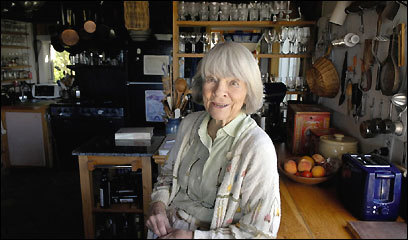 The Tenth Muse: My Life in Food, by Judith Jones, a who's who memoir of modern cookery.
The Tenth Muse: My Life in Food, by Judith Jones, a who's who memoir of modern cookery.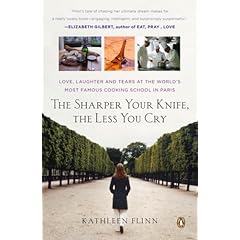 The Sharper Your Knife, the Less You Cry: Love, Laughter and Tears in Paris at the World's Most Famous Cooking School, by Kathleen Flinn. (I want to go to Paris too, just to eat of course.)
The Sharper Your Knife, the Less You Cry: Love, Laughter and Tears in Paris at the World's Most Famous Cooking School, by Kathleen Flinn. (I want to go to Paris too, just to eat of course.)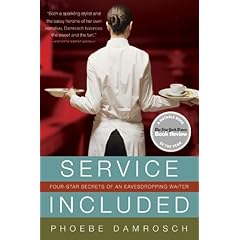
Wednesday, October 15, 2008
Look for Hot Dads

Horrifying Moral Lessons
 Hilaire Belloc was an English Man of Letters of the old school. Not a single form was neglected by him: essays, novels, politics, biography, history, theology, editorials and poetry filled page after page, book after book (some of them quite good and even still in print.) Nowadays, he is chiefly remembered (and reprinted) as a defender of the Catholic Church. But do not let his reputation as a very serious patriarch daunt you. Belloc was also a delightful and funny fellow. Witness his children's verse, available again in a new Dover reprint: Cautionary Tales & Bad Child's Book of Beasts. This edition restores Belloc's own, very funny and rather weird illustrations.
Hilaire Belloc was an English Man of Letters of the old school. Not a single form was neglected by him: essays, novels, politics, biography, history, theology, editorials and poetry filled page after page, book after book (some of them quite good and even still in print.) Nowadays, he is chiefly remembered (and reprinted) as a defender of the Catholic Church. But do not let his reputation as a very serious patriarch daunt you. Belloc was also a delightful and funny fellow. Witness his children's verse, available again in a new Dover reprint: Cautionary Tales & Bad Child's Book of Beasts. This edition restores Belloc's own, very funny and rather weird illustrations. The Chief Defect of Henry King
Was chewing little bits of String.
At last he swallowed some which tied
Itself in ugly Knots inside.
Physicians of the Utmost Fame
Were called at once; but when they came
They answered, as they took their Fees,
``There is no Cure for this Disease.
``Henry will very soon be dead.''
His Parents stood about his Bed
Lamenting his Untimely Death,
When Henry, with his Latest Breath,
Cried, ``Oh, my Friends, be warned by me,
That Breakfast, Dinner, Lunch, and Tea
Are all the Human Frame requires...''
With that, the Wretched Child expires.
Tuesday, October 14, 2008
The Last Poem in the World
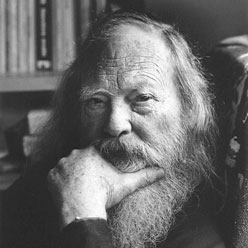
by Hayden Carruth
Sometimes we don’t say anything. Sometimes
from “Collected Shorter Poems” Copper Canyon Press, 1992
Thursday, October 09, 2008
Georgiana Duchess of Devonshire roars back

Look for new and used copies, before or after seeing the new movie "The Duchess" staring Keira Knightley.
Wednesday, October 08, 2008
Welcome, Nerdfighters!
Which book by John Green comes to mind when you see this band?

Search for the title in our stock HERE!
Monday, October 06, 2008
Congratulations, Nerdfighters!
Nick interviews Aravind Adiga
By Nick DiMartino
Nick’s Picks, University Book Store
I've read The White Tiger twice. It’s my favorite novel of 2008, and currently shortlisted for the Booker Prize.
The author is 34-year-old Aravind Adiga, a former correspondent in India for TIME Magazine. Born in southeastern India on the Bay of Bengal, he was raised partly in Australia and currently lives in Mumbai. The White Tiger is Adiga’s first novel, a word-perfect satirical delight, one of the best first novels in years. The writing is so natural and laugh-out-loud funny that the book zips along, a banquet of moral complexity that keeps the reader laughing and thinking long after it’s finished.
The book’s narrator, Balram Halwai, is a self-confessed murderer, a man who has killed his boss and wants to tell you why. Balram has lived a life of brutal poverty in a backward village in North India, and is now determined to succeed as a rich man’s driver in ruthless, crowded New Delhi. Balram likes to call himself an entrepreneur, which means he’s a hustler, and he hustles for a living, and he’s hustling you, the reader, as he tells his story. Adiga takes you inside Balram’s mind so that you grow to love him, and when he misbehaves you suffer and worry and sweat. You will never forget the murder scene.
Among Adiga’s many writing aces are two of my favorite elements of fiction, character comedy in the narration, and behind it all a simmering rage at human injustice.
University Book Store and his publisher, Free Press, recently encouraged me to ask Aravind Adiga a few questions at his home in India. He’s such a personal hero, I was thrilled for the chance. We exchanged emails:
NICK: Beneath the comic surface of The White Tiger is a genuine anger. That anger feels like it's been earned. How much of Balram's anger is your own?
ARAVIND ADIGA: This is a hard question to answer. The novel is written in "voice"—in Balram's voice—and not in mine. Some of the things that he's confused by or angry about are changes in India that I approve of; for instance, he is uncomfortable with (as many men like him are) the greater freedom that women have in today's India. Some of the other things he's unhappy about—like corruption—are easier for me to identify with. When talking to many men whom I met in India, I found a sense of rage, often suppressed for years and years, that would burst out when they finally met someone they could talk to. But their anger was not the anger of a liberal, middle-class man at a corrupt system; it was something more complex—a blend of values both liberal and reactionary—and I wanted to be true to what I'd heard. Balram's anger is not an anger that the reader should participate in entirely—it can seem at times like the rage you might feel if you were in Balram's place—but at other times you should feel troubled by it, certainly.
NICK: Balram is one of the most charming characters of the year, really and truly, his voice is a delight—a hustler who's hustling the reader but not quite as well as he thinks he is. How did you put together such a complex, truly likeable guy, a victim and yet a murderer? Did you use bits and pieces of anyone you know?
ARAVIND ADIGA: Many of the Indians I met while I traveled through India blended into Balram; but the character is ultimately of my own invention. I wanted to depict someone from India's underclass—which is perhaps 400 million strong—and which has largely missed out on the economic boom, and which remains invisible in most films and books coming out of India. My aim was to draw aspects from the people I'd met to create someone whom I see all around me in India, but never in its literature: someone whose moral character seems to change by the minute—trustworthy one minute, but untrustworthy the next—who would embody the moral contradictions of life in today's India. I'm glad you point out that he is a hustler—which he is!—one of the frustrations of writing a book like this is that so many critics seem to think that Balram's views are meant to be taken objectively!
NICK: The device of writing to the Chinese premier is a clever way of allowing Balram to open up to the reader, while at the same time providing a springboard for some telling comments on the India-China interface today. How did you come up with such a clever narrative technique?
ARAVIND ADIGA: He's not actually writing; he's talking out into the night, in his isolated room. He has to tell his story to someone, but he can't ever do so because it's a terrible story. Indians, traditionally, are stimulated into reflecting on their society and nation by the arrival of an outsider who asks questions; in the past, this outsider was the European or the American—today, it is the man from China, which is India's alter-ego in so many ways. Indians today are absolutely obsessed with the Chinese, and keep comparing themselves to China out of a belief that the future of the world lies with India and China.
NICK: What are you currently involved doing in India? Are you working on another novel? Can you tell us anything about it?
ARAVIND ADIGA: I continue to be a journalist here. I quit my full-time job with TIME magazine some years ago, after working for them as a correspondent from 2003 to 2005. I still write for TIME occasionally, but also for British and Indian newspapers. I've been working on another book for some time now; I hope it'll be completed soon.
So do we, Aravind Adiga! I'm not much of a one for young novelists, but let me tell you, this man is a standout. In The White Tiger (in paperback on October 14), he has written a superb little monologue that's smart and sensitive both, with pathos and slapstick and real moral bite all rolled into a swift, economical tour de force. I can't tell you how earnestly I'm hoping that for once those crazy Booker judges get it right.

